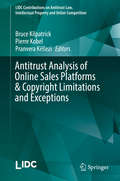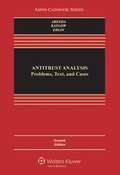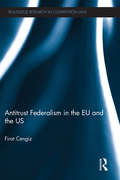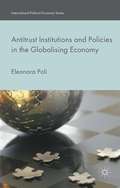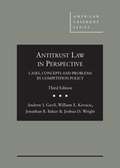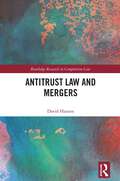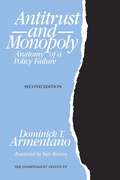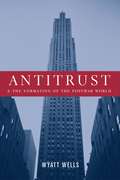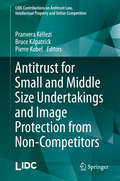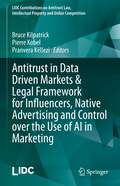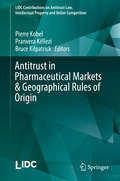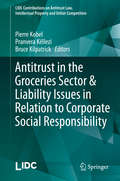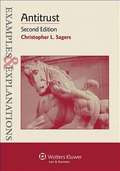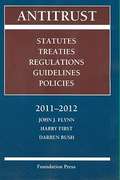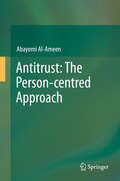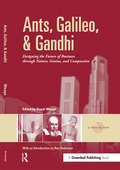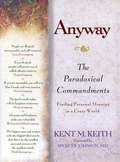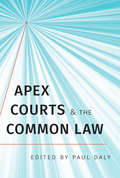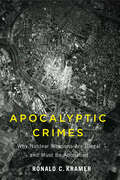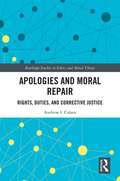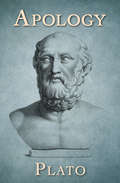- Table View
- List View
Antiterrorism and Threat Response: Planning and Implementation
by Ross JohnsonAs security professionals, we tend to get seduced by the beauty of our technology. We go to trade exhibitions filled with the latest innovations and marvel at what we see without understanding how it fits in with what we do. It’s both overwhelming and distracting, like trying to learn to cook by walking through a grocery store.This focus on technology teaches us to judge the effectiveness of physical protection systems by the strength of the barriers, the acuity of the cameras, and the sensitivity of the sensors. Terrorists and criminals look for something else entirely, though: where we see strength, they find weakness and vulnerability. We are looking at the same things, but not seeing the same things. If we want to stop them, we need to know more than how they work. We need to learn to see the way they see.A physical protection system - that collection of people, sensors, barriers, policies, and technology – is a lot like a piano: and you cannot tell if a piano is in tune by looking at it. You have to play it. The major contribution of Antiterrorism and Threat Response: Planning and Implementation, 2e is the detailed instruction and practical advice on how to see the weaknesses and vulnerabilities in physical protection systems and upgrade them to meet the challenges of terrorists and criminals. Key features of this book are: Provides professionals with the background to understand how terrorists think and operate, in order to best coordinate their counterterrorism efforts and antiterrorism strategies Examines difficult new problems facing security professionals: such as the use of drones, guns, and the internet as a tool of both recruitment and indoctrination Teaches the reader how to step outside the security department to find and fix weaknesses and vulnerabilities in physical protection systems Introduces and discusses security management and insider threat risk management programs This is the advanced course in protecting physical assets from terrorists and criminals.
Antitrust Analysis of Online Sales Platforms & Copyright Limitations and Exceptions (LIDC Contributions on Antitrust Law, Intellectual Property and Unfair Competition)
by Bruce Kilpatrick Pierre Kobel Pranvera KëlleziThis book gathers international and national reports from across the globe on key questions in the field of antitrust and intellectual property.The first part discusses the application of competition law to online sales platforms, which is increasingly a focus for anti-trust authorities around the world. A detailed international report explores which are the major challenges for competition law generated by the growth of online platforms. It provides an excellent comparative study of this complex and challenging subject.The second part of the book gathers contributions from various jurisdictions on the topic “To what extent do current exclusions and limitations to copyright strike a fair balance between the rights of owners and fair use by private individuals and others ?" This section presents an international report, which offers an unparalleled comparative analysis of this topic, bringing together common themes and contrasting the various national provisions dealing with exceptions to copyright, amongst other things.The book also includes the resolutions passed by the General Assembly of the International League of Competition Law (LIDC) following a debate on each of these topics, which include proposed solutions and recommendations. The LIDC is a long-standing international association that focuses on the interface between competition law and intellectual property law, including unfair competition issues.
Antitrust Analysis: Problems, Text, and Cases Seventh Edition
by Louis Kaplow Aaron S. Edlin Phillip E. AreedaAspen Casebook Series This text continues to be revised by two of the leading lawyer economists of the early 21st century. This traditional casebook is also known for its pedagogy (cases, explanatory text, and problems) and insightful text that convey essentials background information along with necessary economic principles. Many important contemporary discussions have been updated, such as improved intellectual property, market definition, and collusion.
Antitrust Federalism in the EU and the US (Routledge Research in Competition Law)
by Firat CengizThe EU and the US are the preeminent examples of multi-level polities and both have highly developed competition policies. Despite these similarities however, recent developments suggest that they are moving in different directions in the area of antitrust federalism. This book examines multi-level governance in competition policy from a comparative perspective. The book analyses how competition laws and authorities of different levels - the federal and the state levels in the US and the national and the supranational levels in the EU - interact with each other. Inspired by the increasingly divergent policy developments taking place on both sides of the Atlantic, the author asks whether the EU and the US can draw policy lessons from each other’s experiences in antitrust federalism. Antitrust Federalism in the EU and the US reveals the similarities and differences between the European and American models of antitrust federalism whilst employing policy network models in its comparative analysis of issues such as opacity and accountability in networks. The book is essentially multidisciplinary in its effort to initiate dialogue between the Law and Political Science literatures in this field. This book will be of particular interest to academics, students and practitioners of Competition Law, Constitutional Law and Political Science.
Antitrust Institutions and Policies in the Globalising Economy (International Political Economy Series)
by Eleonora PoliEleonora Poli analyses how ideas and material interests have come to determine the evolution of antitrust policies in the USA, EU, Japan and BRICS. She argues that three major economic crises together with market globalisation have changed governments' perceptions of market competition, giving rise to a neo-liberal global phase.
Antitrust Law In Perspective: Cases, Concepts And Problems In Competition Policy
by Joshua Wright Jonathan Baker Andrew Gavil William KovacicThe third edition of Gavil, Kovacic and Baker's Antitrust Law in Perspective: Cases, Concepts and Problems in Competition Policy thoroughly updates the second edition. It includes a more accessible treatment of the rule of reason, a further modernized treatment of collusion, the most comprehensive merger chapter available, an innovative new chapter on distribution strategies, and a refreshed and updated treatment of intellectual property and innovation. For the third edition, the authors are joined by former FTC Commissioner Joshua D. Wright, who is now University Professor and Executive Director of the Global Antitrust Institute at the Antonin Scalia Law School at George Mason University.
Antitrust Law and Mergers (Routledge Research in Competition Law)
by David HansenThis book discusses the economic models and quantitative research involved in merger control forecasts and the relationship between antitrust law and economics. Analyzing qualitative and quantitative models within forecasts of merger control, the book applies the framework of antitrust law.This book proposes that economic modelling, econometrics application and juridical application of antitrust law go hand in hand. Discussing the question of an economically rational application and enforcement of antitrust and merger control law, the book covers both the basic concepts and theory behind economic model forecasts, as well as the application of merger control law. It also takes a closer look at legal control options for competition authorities when making a forecast decision and the associated problems of applying the law to this.The book will be of interest to researchers in the field of antitrust law, competition law, economics and corporate law.
Antitrust and Monopoly: Anatomy of a Policy Failure
by Dominick T. ArmentanoIs antitrust law a necessary defense against the predatory business practices of wealthy, entrenched corporations that dominate a market? Or does antitrust law actually work to restrain and restrict the competitive process, injuring the public it is supposed to protect?In this breakthrough study, Professor Armentano thoroughly researches the classic cases in antitrust law and demonstrates a surprising gap between the stated aims of antitrust law and what it actually accomplishes in the real world. Instead of protecting competition, Professor Armentano finds, antitrust law actually protects certain politically-favored competitors. This is an essential work for anyone wishing to understand the limitations and problems of contemporary antitrust actions.
Antitrust and the Formation of the Postwar World (Columbia Studies in Contemporary American History)
by Wyatt WellsToday antitrust law shapes the policy of almost every large company, no matter where headquartered. But this wasn't always the case. Before World War II, the laws of most industrial countries tolerated and even encouraged cartels, whereas American statutes banned them. In the wake of World War II, the United States devoted considerable resources to building a liberal economic order, which Washington believed was necessary to preserving not only prosperity but also peace after the war. Antitrust was a cornerstone of that policy. <P><P>This fascinating book shows how the United States sought to impose—and with what results—its antitrust policy on other nations, especially in Europe and Japan. Wyatt Wells chronicles how the attack on cartels and monopoly abroad affected everything from energy policy and trade negotiations to the occupation of Germany and Japan. He shows how a small group of zealots led by Thurman Arnold, who became head of the Justice Department's Antitrust Division in 1938, targeted cartels and large companies throughout the world: IG Farben of Germany, Mitsui and Mitsubishi of Japan, Imperial Chemical Industries of Britain, Philips of the Netherlands, DuPont and General Electric of the United States, and more. Wells brilliantly shows how subsequently, the architects of the postwar economy—notably Lucius Clay, John McCloy, William Clayton, Jean Monnet, and Ludwig Erhard—uncoupled political ideology from antitrust policy, transforming Arnold's effort into a means to promote business efficiency and encourage competition.
Antitrust for Small and Middle Size Undertakings and Image Protection from Non-Competitors (LIDC Contributions on Antitrust Law, Intellectual Property and Unfair Competition)
by Bruce Kilpatrick Pierre Kobel Pranvera KëlleziThis publication provides an unparalleled comparative analysis of two "hot topics" in the field of antitrust and unfair competition laws with regard to a number of key countries. The first part of the book examines whether small and middle-sized businesses could or should be subject to specific competition rules. These businesses account for 99% of the enterprises in Europe and the United States, making this a particularly important topic. The papers consider both the public and private enforcement rules across a range of jurisdictions and a detailed international report, prepared by Michele Carpagnano, identifies general trends and highlights differences and the most interesting features of national regulations. The second part of the book gathers contributions from various jurisdictions on the unfair competition question of whether a company could or should be protected against the use of their trademark, distinctive signs and other components of their image and identity on the part of non-competing companies. The papers focus on the fundamental issue of the competitive relationship as a condition of protection under unfair competition acts and the connection to intellectual property protection. The comprehensive and insightful international report, prepared by Martine Karsenty-Ricard, brings together these reflections by comparing various national positions. The book also includes the resolutions passed by the General Assembly of the LIDC following a debate on each of these topics, which include proposed solutions and recommendations. The International League of Competition Law (LIDC) is a long-standing international association that focuses on the interface between competition law and intellectual property law, including unfair competition issues.
Antitrust in Data Driven Markets & Legal Framework for Influencers, Native Advertising and Control over the Use of AI in Marketing (LIDC Contributions on Antitrust Law, Intellectual Property and Unfair Competition)
by Bruce Kilpatrick Pierre Kobel Pranvera KëlleziThis book gathers contributions from a broad range of jurisdictions, written by practitioners and academics alike, and offers an unparalleled comparative view of key issues in competition law, intellectual property and unfair competition law, with a specific focus on the use of personal data. The first part focuses on the role of competition law in shaping the digital economy. It discusses the use of personal data, the market power of platforms, the assessment of free services, and more broadly the responsibility of dominant companies in the smooth functioning of the digital economy. In turn, the second part sheds light on how the conduct of influencers, native advertising and the use of AI for marketing purposes can be controlled by the law, focusing on the use of personal data and the impact of behavioral advertising on consumers. In this regard, the book brings together the current legal responses across a number of European and other countries, all summarized and elaborated on in the form of two international reports. The LIDC is a long-standing international association that focuses on the interface between competition law and intellectual property law, including unfair competition issues.
Antitrust in Pharmaceutical Markets & Geographical Rules of Origin (LIDC Contributions on Antitrust Law, Intellectual Property and Unfair Competition)
by Bruce Kilpatrick Pierre Kobel Pranvera KëlleziThis book gathers international and national reports from across the globe on key questions in the field of antitrust and intellectual property. The first part discusses the application of competition law in the pharmaceutical sector, which continues to be a focus for anti-trust authorities around the world. A detailed international report explores the extent to which the application of the competition rules in the pharmaceutical sector should be affected by the specific characteristics of those products and markets (including consumer protection rules, the need to promote innovation, the need to protect public budgets, and other public interest considerations). It provides an excellent comparative study of this complex subject, which lies at the interface between competition law and intellectual property law. The second part of the book gathers contributions from various jurisdictions on the topic of "What rules should govern claims by suppliers about the national or geographic origin of their goods or services?" This section presents an international report, which offers an unparalleled comparative analysis of this topic, bringing together common themes and contrasting the various national provisions dealing with indications of origin, amongst other things. The book also includes the resolutions passed by the General Assembly of the International League of Competition Law (LIDC) following a debate on each of these topics, which include proposed solutions and recommendations. The LIDC is a long-standing international association that focuses on the interface between competition law and intellectual property law, including unfair competition issues.
Antitrust in the Groceries Sector & Liability Issues in Relation to Corporate Social Responsibility (LIDC Contributions on Antitrust Law, Intellectual Property and Unfair Competition)
by Bruce Kilpatrick Pierre Kobel Pranvera KëlleziThe book provides an analysis of the grocery retail market in a very large number of countries with an international report written by an economist. The second part of the book offers the analysis of liability issues in relation to non-compliance with CSRs with an international report by a British barrister. Both topics are very timely.
Antitrust: Examples and Explanations (Second Edition)
by SagersA favorite among successful students, and often recommended by professors, the unique Examples & Explanations series gives you extremely clear introductions to concepts followed by realistic examples that mirror those presented in the classroom throughout the semester. Use at the beginning and midway through the semester to deepen your understanding through clear explanations, corresponding hypothetical fact patterns, and analysis. Then use to study for finals by reviewing the hypotheticals as well as the structure and reasoning behind the accompanying analysis. Designed to complement your casebook, the trusted Examples & Explanations titles get right to the point in a conversational, often humorous style that helps you learn the material each step of the way and prepare for the exam at the end of the course. The unique, time-tested Examples & Explanations series is invaluable to teach yourself the subject from the first day of class until your last review before the final. Each guide: helps you learn new material by working through chapters that explain each topic in simple language challenges your understanding with hypotheticals similar to those presented in class provides valuable opportunity to study for the final by reviewing the hypotheticals as well as the structure and reasoning behind the corresponding analysis quickly gets to the point in conversational style laced with humor remains a favorite among law school students is often recommended by professors who encourage the use of study guides works with ALL the major casebooks, suits any class on a given topic provides an alternative perspective to help you understand your casebook and in-class lectures
Antitrust: Statutes, Treaties, Regulations, Guidelines and Policies
by John J. Flynn Harry FirstThe growing complex of amendments to the basic antitrust laws and adoption of special industry statutes and exemptions, enforcement agency "Guidelines" and agency "Policies" requires the publication of a convenient compilation of these materials for the practitioner, the academic and the student of antitrust law. The materials selected include the full text of the Sherman, Clayton and Federal Trade Commission acts. Significant statutes defining exemptions from the antitrust laws like those applying to health care, local government regulation, insurance, baseball (The Curt Flood Act of 1998 adding § 27a to The Clayton Act) and other activities are included. The "Antitrust Civil Process Act" is included because of its significance for the unique discovery tools used in antitrust investigations.
Antitrust: Statutes, Treaties, Regulations, Guidelines, and Policies, 2011-2012
by John J. Flynn Harry First Darren BushThis compilation contains the major statutes, treaties, regulations, guidelines, and policies affecting antitrust law. This edition includes the Sherman and Clayton Acts, the most recent federal guidelines (including the new Horizontal Merger Guidelines), procedural statutes and exemptions, as well as international agreements and treaties. Useful for students and practitioners alike.
Antitrust: The Person-centred Approach
by Abayomi Al-AmeenThis book proposes a different approach to theorising and analysing antitrust issues, working on the premise that at present, antitrust is addressed from top-down and narrow perspectives which in effect limit the attention paid to or exclude issues that could otherwise be considered. This reasoning is motivated by the pursuit of inclusiveness and broadness in the antitrust context. The work contends that traditional top-down antitrust theories are weak because they are incomplete and insufficient in their description and analysis of antitrust issues. Thus, it identifies the need to construct a bottom-up approach. Invariably, such an approach would have to avoid ex ante judgments about the suitability of the normative contents of antitrust laws and theories, lest it fall into the same trap that plagues traditional theories. As a possible solution, the author proposes a procedural account referred to as the person-centred approach (built on theories such as Sen's Capability) and carefully reviews its practicality.
Ants, Galileo, and Gandhi: Designing the Future of Business through Nature, Genius, and Compassion
by Sissel WaageAlthough sustainability efforts in business are still a work in progress, it is increasingly clear that key elements of a new generation of enterprises will be radically different from those of our contemporary modern industrial economy. The core distinctions between what currently exists and what is being created are communicated in this book through the compelling metaphor of Ants, Galileo, and Gandhi.This collection, developed from The Natural Step's conference on Sustainability and Innovation in 2002, provides radical ideas for generating a new perspective on the dynamics of business systems. "Ants" symbolise the lessons to be learned from nature and the dependence of individual beings on broader, complex systems. "Galileo" embodies brilliance in perceiving and proving that the current paradigm is flawed. 'Gandhi' exemplifies exceptional compassion in fighting for fundamental change.All of these attributes are increasingly relevant in a world where, globally, we are experiencing both a steady decline in life-supporting resources and rising demands. Recognition of these challenges is sparking innovation within the private sector where the first glimmers of systemic change can be seen. The book examines the emergence of 21st-century enterprises that recognise their reliance on broad social and ecological systems ("ants"), incorporate sparks of genius rooted in rigorous analyses ("Galileo"), and acknowledge the importance of compassion and determination within any endeavour ("Gandhi").With contributions from Ray Anderson, Gretchen Daily, Karl-Henrik Rob
Anything Your Little Heart Desires: An American Family Story
by Patricia BosworthA memoir by the daughter of famous attorney Bartley C. Crum: &“A gripping account not only of Crum but of McCarthyism and its devastating effects&” (SFGate). The FBI kept a secret dossier on him. He was a confidante to stars; adviser to politicians; and lawyer to the likes of William Randolph Hearst, Rita Hayworth, and the blacklisted Hollywood Ten, whom he defended during the House Un-American Activities Committee trials of 1947. Bartley C. Crum was also Patricia Bosworth&’s father—a frequently absent, unrelentingly principled, and stubbornly self-destructive one. Anything Your Little Heart Desires is Bosworth&’s memoir of life with him, and of the momentous events that shaped his lifetime, from the New Deal to the Cold War and the anti-Communist fervor that jolted American life. Using interviews, journals, letters, and her father&’s own files, Bosworth delivers a profoundly personal portrait of the father she never fully knew, and the political forces that shaped a nation.
Anyway: Finding Personal Meaning in a Crazy World
by Kent M. KeithPeople are illogical, unreasonable, and self-centered. Love them anyway. If you do good, people will accuse you of selfish ulterior motives. Do good anyway. If you are successful, you will win false friends and true enemies. Succeed anyway. The good you do today will be forgotten tomorrow. Do good anyway. Honesty and frankness make you vulnerable. Be honest and frank anyway. The biggest men and women with the biggest ideas can be shot down by the smallest men and women with the smallest minds. Think big anyway.
Anzeigepflichten für Steuergestaltungen in Deutschland: Verfassungs- und europarechtliche Grenzen sowie Überlegungen zur Ausgestaltung (MPI Studies in Tax Law and Public Finance #7)
by Caroline Heber Christine Osterloh-Konrad Tobias BeuchertDas Buch befasst sich mit den verfassungs- und europarechtlichen Rahmenbedingungen einer Anzeigepflicht für Steuergestaltungen sowie mit ihrer möglichen Ausgestaltung in Deutschland, wobei auch auf Erfahrungen anderer Länder zurückgegriffen wird. Die Anzeigepflicht soll dazu dienen, Gesetzgeber und Verwaltung frühzeitig über Steuervermeidungsstrategien zu informieren, um ihnen eine zeitnahe Reaktion zu ermöglichen (rechtspolitische Zielsetzung). Ein Fokus der europarechtlichen Analyse liegt auf der Bewertung einer Anzeigepflicht für internationale Steuergestaltungen. Im Verfassungsrecht steht neben Bestimmtheits- und Rückwirkungsverbot die Berufsfreiheit der Betroffenen im Vordergrund. Die rechtspolitische Zielsetzung legt einen Zuschnitt der Anzeigepflicht auf modellhafte Gestaltungen nahe; eine Erweiterung auf innovative Gestaltungen erscheint denkbar. Das Buch schließt mit kritischen rechtspolitischen Überlegungen zur Anzeigepflicht im Rahmen eines fairen Steuersystems.
Apex Courts and the Common Law
by Paul DalyFor centuries, courts across the common law world have developed systems of law by building bodies of judicial decisions. In deciding individual cases, common law courts settle litigation and move the law in new directions. By virtue of their place at the top of the judicial hierarchy, courts at the apex of common law systems are unique in that their decisions and, in particular, the language used in those decisions, resonate through the legal system. Although both the common law and apex courts have been studied extensively, scholars have paid less attention to the relationship between the two. By analyzing apex courts and the common law from multiple angles, this book offers an entry point for scholars in disciplines related to law – such as political science, history, and sociology – who are seeking a deeper understanding and new insights as to how the common law applies to and is relevant within their own disciplines.
Apocalyptic Crimes: Why Nuclear Weapons Are Illegal and Must Be Abolished (Critical Issues in Crime and Society)
by Ronald C. KramerIn 2023, the Bulletin of the Atomic Scientists set the iconic Doomsday Clock to ninety seconds to midnight—the closest to midnight, or civilization-ending apocalypse, it has ever been. Designed at the onset of the Cold War amid new fears of atomic weapons, the Doomsday Clock is a symbolic countdown to annihilation. Now, a generation later, the world is more vulnerable than ever to the nuclear weapons it sought to warn against. In Apocalyptic Crimes, Ronald C. Kramer reconsiders the immense danger these weapons pose to humanity, examining the use, threat to use, and continued possession of nuclear weapons from a criminological perspective. Kramer argues that any country holding on to its nuclear arsenal—including the United States—is committing a criminal act. Offering a sharp rebuke to the common claim that nuclear stockpiles serve to deter the escalation of conflict, Apocalyptic Crimes emphasizes the harm caused by the mere possession of these deadly weapons. It further considers the culpability of political officials, acting as representatives of the state, whose threatening statements about nuclear weapons contain actions or omissions that violate specific international laws. But Kramer also shows how a nuclear apocalypse might be averted and offers a pathway to disarmament. Through critical analysis and a specific criminology of nuclear weapons, Kramer outlines the political actions necessary to rewind the Doomsday Clock and pull the world back from the brink of destruction—before the clock strikes midnight.
Apologies and Moral Repair: Rights, Duties, and Corrective Justice (Routledge Studies in Ethics and Moral Theory)
by Andrew I. CohenThis book argues that justice often governs apologies. Drawing on examples from literature, politics, and current events, Cohen presents a theory of apology as corrective offers. Many leading accounts of apology say much about what apologies do and why they are important. They stop short of exploring whether and how justice governs apologies. Cohen argues that corrective justice may require apologies as offers of reparation. Individuals, corporations, and states may then have rights or duties regarding apology. Exercising rights to apology or fulfilling duties to provide them are ways of holding one another mutually accountable. By casting rights and duties of apology as justifiable to free and equal persons, the book advances conversations about how liberalism may respond to historic injustice. Apologies and Moral Repair will be of interest to scholars and advanced students in ethics, political philosophy, and social philosophy.
Apology: Crito And Phaedo Of Socrates - Scholar's Choice Edition
by PlatoSocrates defends himself in court in this resounding speech, recounted firsthand by one of history&’s greatest philosophers. Plato&’s Apology is an account of the speech Socrates makes at the Athenian trial in which he is charged with not accepting the gods recognized by the state, inventing new deities, and corrupting the youth of Athens. Recounted by Plato, Socrates&’s speech is a rousing examination of integrity, wisdom, and the role of a philosopher. It is filled with wit, intelligence, and lessons that remain relevant today.

